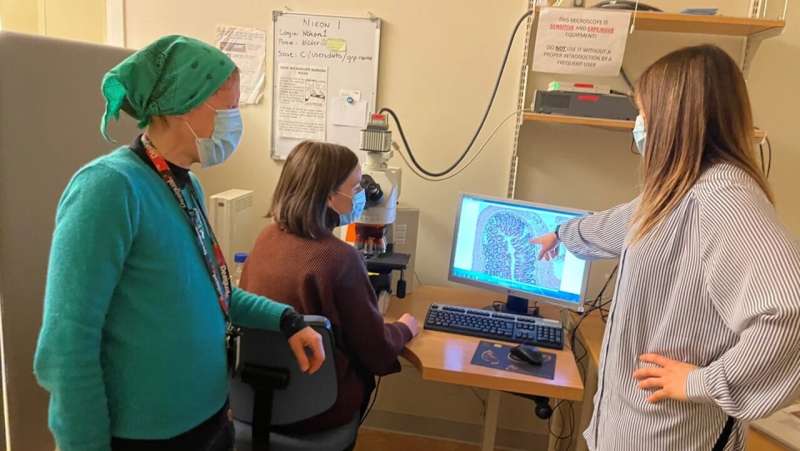A bacterial toxin that acts as a mediator rather than a killer

Traditionally, bacterial toxins have been seen as killers of target cells. But is there more than meets the eye? Umeå University Professor Teresa Frisan and her team have discovered that toxin-host interactions are more complex and that bacterial toxins can act as modulators of the host immune response to avoid bacteria detection and long-term infection. The study has been published in the journal Cell Reports.
Bacterial toxins are toxic substances that are produced and released by bacteria causing illness. Bacterial genotoxins belong to a special family of bacterial toxins that cause DNA damage in host cells, similar to other well-known carcinogenic agents such as radiation. As a consequence of the damage, the host cells activate DNA repair mechanisms.
However, if the damage is too extensive, the majority of cells undergo a gradually deteriorating state known as cellular senescence, a form of cellular aging. Senescent cells do not divide but instead secrete many substances that contribute to activating inflammation, which is also the first line of antibacterial defense. So why would bacteria acquire toxins that activate anti-bacterial defense mechanisms? It seems like shooting themselves in the foot.
Through their study, researchers from the Department of Molecular Biology and Umeå Center for Microbial Research (UCMR) at Umeå University, in cooperation with national and international colleagues, show that in spite of induction of DNA damage and cellular aging, the presence of a functional genotoxin suppresses intestinal inflammation, reducing the tissue damage and mortality rate, allowing the bacteria to invade the host in a stealth manner.
"This effect is due to activation of a toxin-dependent anti-inflammatory response," says Professor Teresa Frisan at the Department of Molecular Biology at Umeå University.
In addition, the researchers have shown that the anti-inflammatory effect is context-dependent, since it is lost in individuals suffering from colitis, which is an intestinal inflammatory condition. This underlines the relevance of the patient's health status in defining the final outcome of the intoxication.
"The study highlights a complex crosstalk between the bacterial genotoxins, DNA damage and a sophisticated modulation of the host immune response, opposite to the traditional view of toxins as brutal killers," says Teresa Frisan.
More information: Océane C.B. Martin et al. Influence of the microenvironment on modulation of the host response by typhoid toxin, Cell Reports (2021). DOI: 10.1016/j.celrep.2021.108931
Journal information: Cell Reports
Provided by Umea University




















